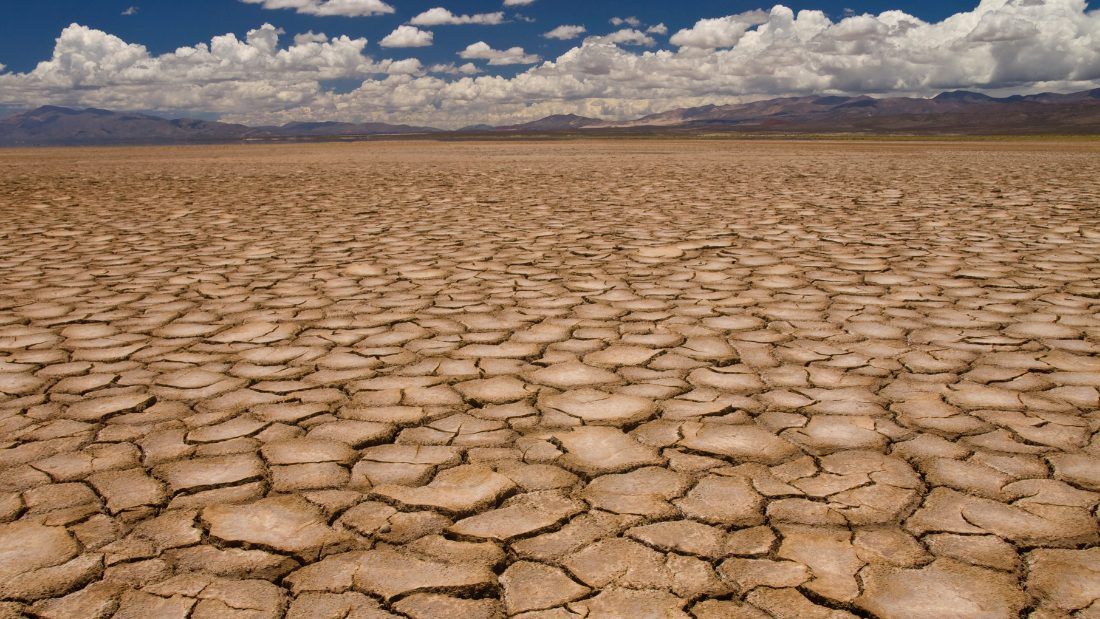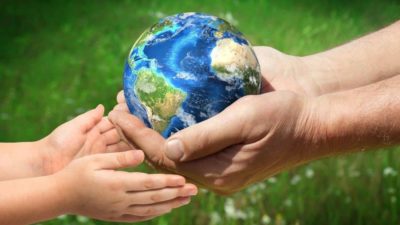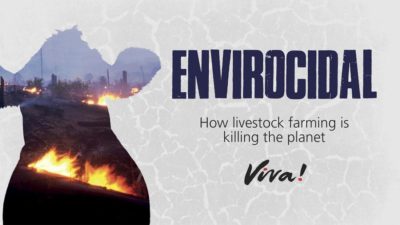5 Key Takeaways from the IPCC’s Latest Climate Report

The window for action is rapidly narrowing as the human-induced climate crisis causes widespread adverse impacts to nature and people on a scale greater than predicted, the latest IPCC report reveals.
Here are our key takeaways, including how going vegan is one of the most effective changes we can make to combat the climate crisis.
1. The climate crisis is happening now
The climate emergency isn’t a thing of the future; it is happening now. Everywhere is affected and the extent and magnitude of its impacts are larger than previously estimated.
The climate crisis has resulted in more extreme weather events, such as droughts, floods and heatwaves, with an estimated 3.5 billion people highly vulnerable and millions of people already facing water and food shortages. It’s already responsible for worldwide suffering through physical and mental health, hunger and poverty as well as exacerbating humanitarian crises and conflicts.
If warming continues above 1.5°C of pre-industrial levels, it’s predicted the impacts will accelerate with many then becoming irreversible.
2. Humanity is dependent on nature
The survival of humanity and nature depend on each other, with the degradation and destruction of global ecosystems increasing people’s vulnerability to climate change impacts. The report cites unsustainable land use, land cover change and deforestation as key drivers of this. Unsurprisingly, livestock farming can be found at the root of all these issues. For instance, animal agriculture is the biggest driver of deforestation as forests are cleared to make way for growing animal feed and grazing.
The report is a stark reminder of the fragile state of nature, with climate change having caused “substantial damages, and increasingly irreversible losses, in terrestrial, freshwater and coastal and open ocean marine ecosystems” and many species threatened with extinction.
Protecting biodiversity will be fundamental to our capacity to respond to the climate crisis and will require conservation of approximately 30 to 50 per cent of Earth’s land, freshwater and ocean areas. Only by halting livestock farming can we free up the land required to achieve this.
3. Food systems are in trouble
The report highlighted how the climate crisis is negatively impacting global food security due to increasing weather events and the breakdown of ecosystem services that our food system relies on. It states that climate change has slowed the growth of agricultural productivity over the past 50 years globally and this is only predicted to get worse. If global heating continues and little adaptation is put in place, 183 million more people are projected to go hungry by 2050.
It’s almost ironic that our current livestock-reliant food system is in turn fuelling the breakdown of food production, a connection made in the report:
“While agricultural development contributes to food security, unsustainable agricultural expansion, driven in part by unbalanced diets, increases ecosystem and human vulnerability and leads to competition for land and/or water resources.”
4. Action is needed now
To put it simply we are rapidly running out of time to combat the climate crisis; while some impacts are now unavoidable there is still a narrow window of time to secure a liveable future.
Christiana Figueres, former UN climate chief says: “We can prevent and protect ourselves from extreme weather, famines, health problems and more by cutting emissions and investing in adaptation strategies. The science and the solutions are clear. It’s up to us how we shape the future.”
And the science is clear; with animal agriculture responsible for an estimated fifth of all anthropogenic (resulting from human activity) greenhouse gas emissions, going vegan is crucial to combat the climate crisis.1Xu X, Sharma P, Shu S et al. 2021. Global greenhouse gas emissions from animal-based foods are twice those of plant-based foods. Nature Food. 2, 724-732.
5. We need a dietary change
The report makes clear that we urgently need a shift in our dietary patterns away from exploitative livestock agriculture towards a more sustainable approach that supports our nutrition and health, alongside global biodiversity and the environment. Plant-based alternatives are highlighted as having essential mitigation and adaptation benefits! Suggesting ways this can be achieved, the report emphasises the role institutions and governments could play in supporting this move through increasing the visibility for vegan options and shifting subsidies towards plant-based food production.
Going vegan will aid climate mitigation and protect food security; our current food system is highly inefficient with 83 per cent of global agricultural land used for livestock farming, and only supplying 18 per cent of the world’s calories.3Poore J and Nemecek T. 2018. Reducing food’s environmental impacts through producers and consumers. Science. 360, 987-992. Growing food solely for human consumption could increase available calories by as much as 70 per cent!4Cassidy ES, West PC, Gerber JS et al. 2013. Redefining agricultural yields: from tonnes to people nourished per hectare. Environmental Research Letters. 8, 3.
This transition needs to happen now. The report concludes: “Any further delay in concerted anticipatory global action on adaptation and mitigation will miss a brief and rapidly closing window of opportunity to secure a liveable and sustainable future for all.”
Switching to vegan is not just beneficial, it’s an imperative. As Joseph Poore, climate researcher at the University of Oxford, states: “A vegan diet is probably the single biggest way to reduce your impact on planet Earth.”







